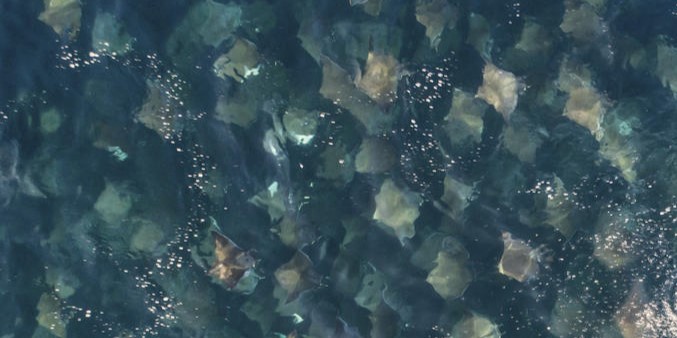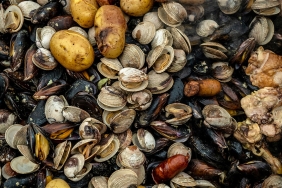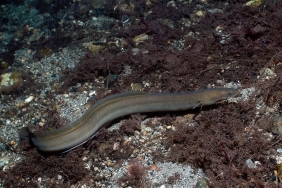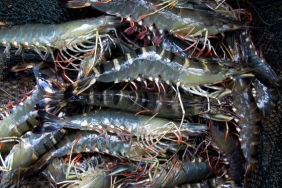WOBF 2014: SUSTAINABLE PRACTICES, LONG-TERM BUSINESS INVESTMENTS
By: Yuliniar Lutfaida and Seafood Savers Team
The Seafood Savers Team and WWF-Indonesia participated in the World Ocean Business Forum (WOBF) 2014 - one of the series of WCRC 2014 - on May 14, 2014 in Manado, North Sulawesi. WOBF is an international business forum that aims to increase food production while contributing to the sustainable development of coral reefs and fisheries.
To achieve this goal, the Ministry of Marine Affairs and Fisheries (KKP) as the organizer invited fisheries business people, policy makers, NGOs as well as researchers from around the world to discuss together. The implementation of WOBF is part of the Indonesian Government's commitment to support the implementation of sustainable fisheries by businesses.
The event was opened by remarks from the Director General of P2HP KKP, Saut P. Hutagalung, and the Governor of North Sulawesi, Sinyo H. Sarundajang. Through this forum, Saut invited business people to apply the principle of blue economy, which is the efficient use of natural resources (zero waste) and pay attention to the environment but still with multiple economic values.
The message was no different from that delivered by WWF and Seafood Savers at the forum. Through the topic "The Coral Triangle and the Desire for a Sustainable fisheries: Issues, Risks, and Solutions in Environmental Perspective", Dr. Lida Pet Soede, Deputy Director of Global Marine Program from WWF-International, emphasized the sustainability of the ecosystem as a long-term investment. Unfortunately, many do not realize this. With the trend of urbanization, not many people are interested in studying marine science, so no one pays attention to our seas. Economic activities are also not environmentally sound, even though the damage to the ecosystem also hampers the fisheries business in the future. "Don't trade long-term investments for short-term gains," Lida emphasized.
Margareth Meutia, Coordinator of WWF-Indonesia's Seafood Savers Initiative, spoke in a parallel session with the theme "Sustained Fisheries and Eco-Friendly Business." In her presentation, Margareth explained that Indonesia fulfills 10% of the world's seafood needs. However, this high percentage has not been accompanied by sustainable fisheries practices. Destructive practices such as the use of cyanide and bombs are still common in Indonesia.
Many fishermen still use non-selective fishing gear, causing high bycatch (bycatch)and overfishing. As a result, fisheries stocks continue to decline and fish are increasingly difficult to catch. Fishermen and companies also lose money because the cost of fishing continues to increase as fishing locations become more distant. Often the efforts and costs made are not proportional to the results obtained.
In terms of aquaculture, intensification and extensification of ponds without considering the carrying capacity of the environment will actually backfire. Unhealthy ponds due to environmental pollution make pond commodities susceptible to disease and cannot produce optimally.
In line with Dr. Lida's message, Margareth again reminded participants to see sustainability issues as a strategic investment. "Sustainable practices are not limited to the protection of nature but also a guarantee for the continuity of the fisheries business. Unfortunately, fisheries industry players have not seen this as an investment, but as an additional cost that is burdensome," said Margareth. Investment in the certification process needs to be seen as a guarantee of future business.
The Director General of P2HP KKP who was present at the session also emphasized this point. "Obtaining a certificate is not a goal, but a step towards fisheries sustainability. Currently, some fisheries in Indonesia already have the potential to qualify and obtain MSC certification. The involvement of various parties is very important to encourage them to obtain certification for sustainable fisheries," Saut explained.
During WCRC 2014, the Seafood Savers Team also opened a booth where businesses and consumers could get information about sustainable fisheries practices. We #choose2save!





